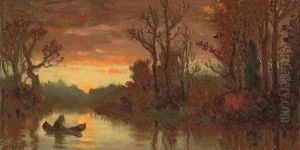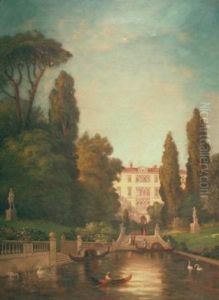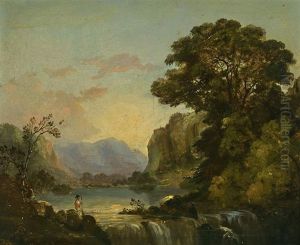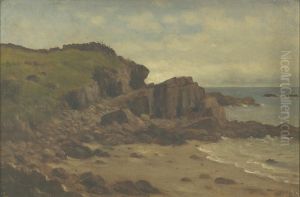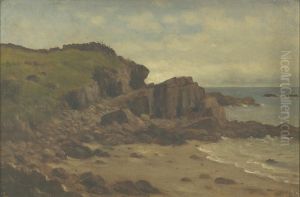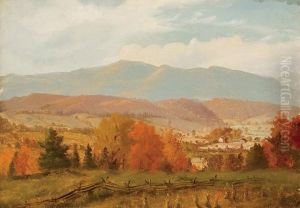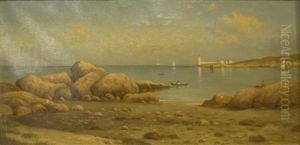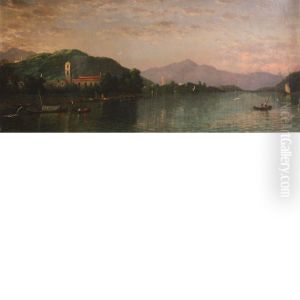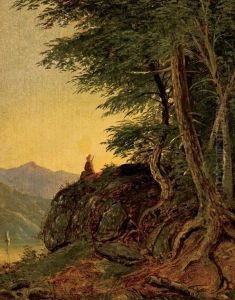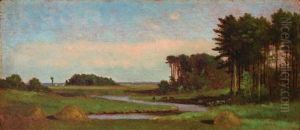Christopher P. Cranch Paintings
Christopher Pearse Cranch was an American writer, poet, and artist, born on March 8, 1813, in Alexandria, Virginia. A multi-talented individual, Cranch was deeply involved in the intellectual and artistic movements of his time, particularly Transcendentalism, which significantly influenced his work and philosophy. He is often remembered for his contributions to American literature and art in the 19th century, embodying the spirit of Romanticism and transcendental thought.
Cranch attended Columbia College (now George Washington University) before studying at Harvard Divinity School, reflecting his early interest in theology and philosophy. However, his engagement with the Transcendentalist movement, which included figures like Ralph Waldo Emerson and Henry David Thoreau, marked a pivotal shift in his career and ideological orientation. Transcendentalism's emphasis on the inherent goodness of people and nature resonated with Cranch, shaping his artistic and poetic expressions.
Throughout his life, Cranch sought to embody the principles of Transcendentalism not only through his writings but also through his art. He became known for his landscape paintings, which often depicted the American wilderness with a mystical and idealized vision, reflecting his philosophical beliefs about the unity and sanctity of nature. His art is characterized by its serene beauty, attention to detail, and the conveyance of a profound connection between the human spirit and the natural world.
As a poet, Cranch published several collections of poetry that explored themes of nature, spirituality, and human emotion, mirroring the transcendental values he held dear. His poetry, while not as widely recognized as his visual art, contributed to the tapestry of American Romantic literature, offering insights into the transcendental experience and the quest for spiritual and emotional truth.
Cranch's contributions to American culture extend beyond his individual works. He was involved in the broader intellectual and artistic discourse of his time, contributing to periodicals and engaging with the community of thinkers and artists who sought to explore and express the ideals of Transcendentalism and Romanticism. Despite the varied reception of his work during his lifetime, Cranch's legacy is one of a profound engagement with the natural world and the human spirit, offering a unique window into the intellectual and artistic currents of 19th-century America.
Christopher Pearse Cranch passed away on January 20, 1892, in Cambridge, Massachusetts. His body of work, encompassing poetry, painting, and intellectual discourse, remains a testament to his deep commitment to exploring and expressing the transcendental and romantic ideals that defined his era.
